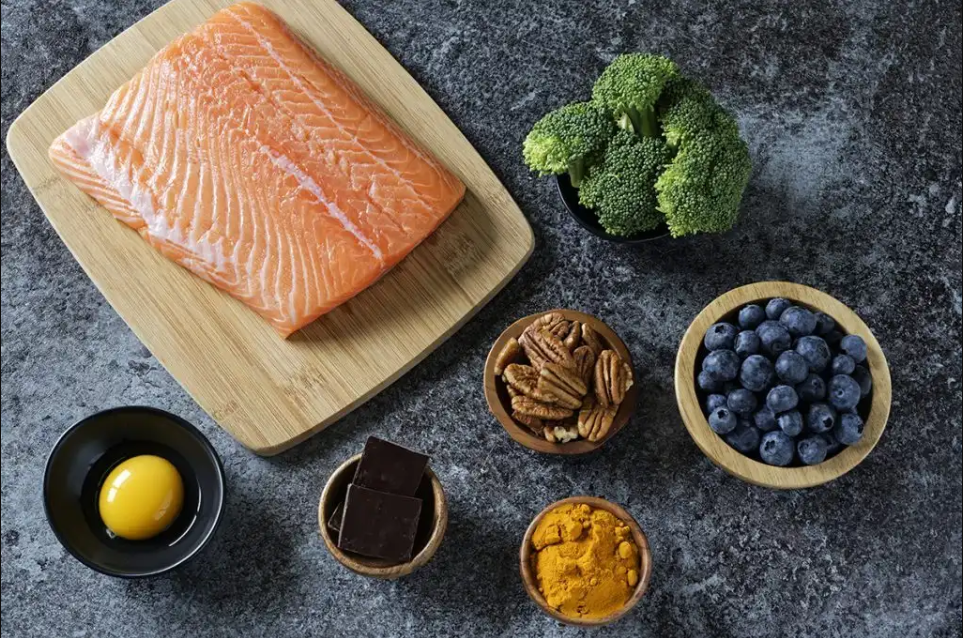The Ultimate Guide to Balanced Nutrition: How to Eat for Optimal Health
The cornerstone of good health is balanced nutrition. When you feed your body with a proper blend of vitamins and different nutrients, you will find that energy increases, immunity is boosted, and the chance for chronic diseases goes down. But what exactly is “balanced nutrition”? And how can we achieve it? This guide will help you to eat for health.
Understanding Balanced Nutrition.
Balanced nutrition involves eating a variety of foods that provide the essential nutrients your body needs to work properly. These nutrients include carbohydrates, proteins, fats, vitamins, minerals and water. They all help you stay healthy: – Carbohydrates: The body’s main source of energy, found in foods such as grains, fruits and vegetables. – Proteins: Needed for growth and repairing tissues, found in meat, fish, eggs, dairy products legumes (beans, lentils) and nuts. – Fats: Necessary for brain health, synthesising certain hormones and absorbing vitamins A, D, E and K, found in oils, nuts, seeds, avocados and fatty fish. – Vitamins and Minerals: Vital for practically every function of the human body, from maintaining the immune system to keeping bones healthy, found in fruits, vegetables, dairy products and lean meats. – Water: Essential for all bodily processes, from digestion to temperature control.
Building a Balanced Plate.
At each meal, aim to create a “balanced plate” so that you are consuming a range of nutrients. Here’s how: – Half of Your Plate: Fruits and Vegetables These are packed with vitamins, minerals and fiber, so be sure to vary the colors to get a range of nutrients. – One Quarter of Your Plate: Whole Grains Whole grains such as brown rice, quinoa, oats and whole wheat give you a more lasting flow of energy, plus they’re rich in fiber to help your digestion.
-Then fill a quarter of your plate with protein. Try to opt for lean meats, fish and chicken, beans, or even tofu. Protein is important for muscle repair, immune function, and overall energy levels.
-Protein is an important component of our daily diet and it can be found in foods like chicken, fish or beans. Protein is needed for muscle repair, immune function and overall energy levels.
-Now add healthy fats. This could be a small amount of olive oil, some nuts or seeds or half an avocado. Healthy fats like these help us better absorb nutrients and provide sustained energy.
-Portion control is an essential dimension of a healthy diet. Even with good food, eating too much can result in weight gain and other health problems. Pay attention to portion sizes and eat slowly, giving your system time to signal that it is full. You can also try using smaller plates and bowls as an easy way to control portion sizes without feeling deprived.
-Hydration is important for overall health. Water is needed in every bodily process from digestion to regulating temperature. Try to drink at least eight 8-ounce glasses of water per day and more if you’re active or live in a hot climate. It’s also a good idea to include hydrating foods like cucumbers, watermelon, or oranges in your diet.
-Minimize unhealthy snacks so you can maintain a healthy diet. While occasionally eating treats is alright, it is important to reduce, if not avoid, processed foods. Processed foods contain added sugars and unhealthy fats, high sodium–all of which can lead to various health problems including heart disease and obesity. Instead, focus on unprocessed or raw materials, which provide more nutrients while promoting better health.
One way of ensuring that your meals are nutritionally balanced even on busy days is to prepare and plan them in advance. Set aside one day of each Sunday to make a plan so you can shop for groceries and get all your ingredients prepared in advance. This way it will be easier to keep to your desire of eating healthy and avoid hastily eaten, unhealthy options.
Balanced nutrition is about making conscious choices that feed your body and contribute to your overall health. By concentrating on a variety of nutrient-dense foods, keeping portion sizes under control, staying hydrated and cutting out processed foods when possible you can weave the diet that promotes long- term health and well-being. You know, it doesn’t have to be perfect so long as you consistently make small changes. Like a snowball gradually grows in size as you roll it farther and further along a snowy hillside start off this day with kitchen habits all. From there on down the road of health!










